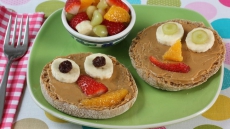Male and female behavioural differences correlate with their different brain networks, say researchers, including one of Indian origin.
Structural differences in the brain may relate to male and female behaviour differences such as men being more likely to be better at learning and performing a single task at hand and women being more likely to exhibit superior memory and social cognition skills, the study said.
"Our results suggest a synchrony between sex-related differences in the brain network and behaviour,” said senior study author Ragini Verma, associate professor at Perelman School of Medicine at University of Pennsylvania in the US.
The findings were published in the journal Philosophical Transactions of the Royal Society B.
Insight into brain differences between men and women offers important considerations for the growing field of personalized medicine, the study pointed out.
The findings also have potential implications for treatment of a variety of conditions.
Differences in the cause and progression of some diseases and disorders according to sex sometimes influence treatment of those conditions. For instance, men are far more likely to get autism than women are.
For the study, the researchers performed diffusion tensor imaging (DTI) brain scans and administered a computerised neurocognitive battery (CNB) of tests on 900 randomly selected healthy and unmedicated children and young adults between ages eight and 22 years.
These methods allowed the team to develop a structural connectome, akin to a road map of each participant's brain.
According to findings of the team, stronger structural connectivity in motor, sensory, and executive functions matched higher motor and spatial skills in males.
In females, subnetworks associated with social cognition, attention and memory tasks had higher connectivity and matched improved memory and social cognition skills.
"Links between brain and behaviour possibly rely on a complex interplay among multiple features of the neurobiological mechanism," Verma said.





